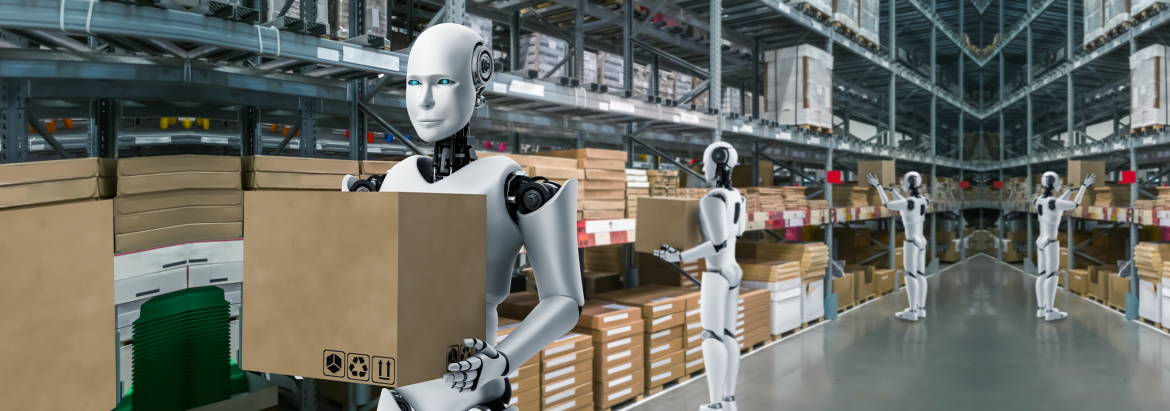
Is AI Replacing Humans?


Artificial Intelligence or AI is a much-discussed buzzword…the omni potent and omni present! We encounter it almost daily, without even being aware of it. Healthcare, Banking, Media, Manufacturing, Retail, Automobile, Agriculture and Farming, Customer service, Voice search, the list is endless!
AI adoption has sky-rocketed over the last 18 months, says a Sep 2021 survey. Gartner found that 33% of technology providers surveyed are investing $1 million or more in AI within two years. AI market to hit USD 360.36 billion by 2028 while exhibiting a CAGR of 33.6% between 2021 and 2028.

Should we be wary of these facts or be happy about it? What does this mean for us, for humanity?
The use of AI alongside other technology and product/service advancements made so far has allowed us to automate monotonous and administrative tasks in business and personal circumstances. It has given us never-before-possible customer experiences, reduced costs, and augmented services in each industry.
All the major advancements we’ve made in the world till now have only developed us as people and created more jobs than ever before. If it were true that machines could replace humans, I would not be writing this article and you would not be reading it!
The question of whether AI will replace human workers assumes that AI and humans have the same qualities and abilities — but they don’t. People and AI bring different abilities and strengths to the table. AI-based machines are faster, more accurate, and consistently rational, but they aren’t intuitive, emotional, or culturally sensitive. And this makes humans unique and irreplaceable.
AI is not creative. Everything AI currently does with its counterparts (robots, internet, chatbots) is programmed into the machine, meaning it can’t think for itself outside of the code it’s got or have a consciousness. This is a real limitation of what AI can or can’t do – it can’t deviate from the set instructions or create a plan of its own, i.e. be creative. AI is derivative. They are only responsive to the data available. It can’t think of a situation itself; YOU must give it something pre-programmed.
AI makes humans creative. AI has given us more time to be creative. More creative with business and marketing strategies, services, life-saving methodologies, etc.
AI increases human efficiency. It automates bank payments, analyzes sales prospects, suggests product improvements, adds intelligence to service providers, enables business efficiency, quick and explosive growth, betters customer experiences. No, it has only made our lives easier.
AI helps improve our defenses. On the cybersecurity front, AI systems are trained to generate alerts for threats, identify new types of malware and protect sensitive data for organizations.
AI ‘drives’ safety. AI has become an integral part of self-driving cars and connected cars. AI in automotive can assist the drivers in protecting against accidents. AI notifies component failure, suggests nearby fuel station. Rise of EVs and strength of data connectivity have opened doors to new players in the automotive industry. AI in the automotive industry also speeds up the insurance claiming process when accidents occur.
AI predicts, detects, and diagnoses. AI can now detect cancer. Google’s artificial intelligence system could be better at  spotting breast cancer than expert radiologists. Other reports say it IS better at spotting cancer than doctors. Think about it – it can reduce the number of doctor/hospital visits, it eliminates the risk of human error, you have increased certainty – it can figure out where cancer is located, and at what stage, and, over time, will be able to pick it up even quicker in new patients…thanks to machine learning.
spotting breast cancer than expert radiologists. Other reports say it IS better at spotting cancer than doctors. Think about it – it can reduce the number of doctor/hospital visits, it eliminates the risk of human error, you have increased certainty – it can figure out where cancer is located, and at what stage, and, over time, will be able to pick it up even quicker in new patients…thanks to machine learning.
CNBC reported that by 2020, artificial intelligence will generate 2.3 million jobs, exceeding the 1.8 million jobs that it will wipe out. Forbes suggests that by 2022, AI will create more than 58 million new jobs. Going by the 2 reports, 2.3 – 58 million jobs within a two-year period, it’s hard to see how AI is going to replace people permanently.
AI will usher in an era of bounty. It will automate and dramatically improve upon the value-creating activities that humans today perform; it will, for instance, enable us to generate food, shelter, and medicine at scale and at low cost. AI should be seen as a boon that helps greater productivity and automation of cognitive routine work.
AI identifies new areas for thought in all industries – enables more research, enables analyzing data and predicting patterns, automates monotonous and mundane tasks and frees up bandwidth for resources to work on strategic initiatives.
AI could also contribute to more leisure time, more time to invest in family and to develop meaningful human relationships, more time for hobbies, more mental space to be creative and productive and more.
The AI-driven transition could be disruptive and painful. It might require us to completely reinvent our society and ourselves. But ultimately, it can be the greatest thing that has ever happened to humanity.
References

Rajeswari is part of the Presales team at GAVS. She has been involved in technical and creative content development for the past 13 years. She is passionate about music and writing and spends her free time watching movies or going for a highway drive.
Please complete the form details and a customer success representative will reach out to you shortly to schedule the demo. Thanks for your interest in ZIF!